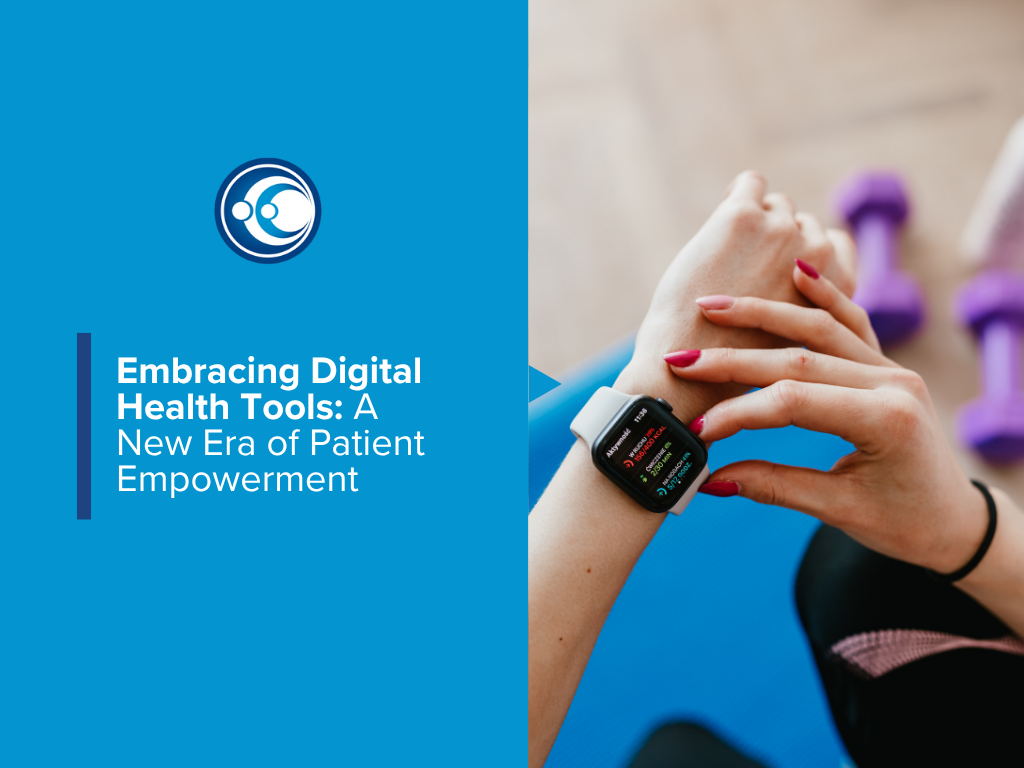In today’s fast-paced world, technology has transformed nearly every aspect of our lives, including healthcare. Digital health tools, such as wearable devices, mobile apps, and remote monitoring systems, are revolutionizing the way patients manage their health. These tools enhance convenience, engagement, and personalization, making it easier than ever to track and improve overall wellness.
The Rise of Digital Health Tools
Digital health tools encompass a wide range of technologies designed to support preventive care, chronic disease management, and overall well-being. From smartwatches that track heart rate and activity levels to apps that provide personalized nutrition plans, these innovations empower individuals to take charge of their health with real-time data and insights.
Wearable Technology: Tracking Fitness and Health
Wearable devices, such as smartwatches, fitness trackers, and heart rate monitors, have become essential tools for many people looking to maintain an active and healthy lifestyle. These devices can monitor steps, calories burned, sleep patterns, and even stress levels. By setting fitness goals and tracking progress, individuals can make more informed decisions about their daily habits and long-term health.
Health and Wellness Apps: Managing Conditions and Mental Health
Beyond fitness tracking, mobile health apps offer powerful tools for managing chronic conditions, tracking medication schedules, and supporting mental well-being. There are apps designed for diabetes management, blood pressure monitoring, and even guided meditation for stress relief. Mental health support apps provide resources for anxiety management, sleep improvement, and direct access to licensed professionals, making mental wellness more accessible.
Choosing the Right Digital Health Tools
With a growing number of digital health options available, selecting the right tools can be overwhelming. It’s essential to consider factors such as accuracy, ease of use, privacy policies, and how well the tool integrates with other healthcare systems. Reading user reviews, checking for clinical validation, and understanding data security features can help individuals make informed choices.
Benefits and Limitations: A Balanced Perspective
While digital health tools offer numerous advantages, it’s essential to recognize their limitations. These tools can provide valuable insights but should complement—not replace—traditional healthcare. Some concerns include data accuracy, potential over-reliance on technology, and accessibility for those who may not have regular internet access or familiarity with digital tools. However, when used effectively, they can enhance patient engagement and support overall health goals.
Data Privacy and Security: Protecting Your Health Information
As digital health tools become more prevalent, safeguarding personal health information is crucial. It’s important to choose apps and devices that comply with privacy regulations, offer secure data encryption, and have clear policies on how they handle user data. Reading privacy policies and understanding what information is shared can help users make informed decisions about their digital health tools.
The Future of Digital Health: What’s Next?
Looking ahead, the field of digital health is rapidly evolving. Emerging trends such as AI-powered health assistants, virtual reality therapies, and remote diagnostics are shaping the future of healthcare. These innovations hold great promise in making healthcare more accessible, efficient, and personalized for individuals of all ages.
Harnessing Technology for Better Health
Digital health tools provide a new avenue for proactive healthcare management, allowing individuals to track and optimize their wellness in ways that were previously unavailable. Whether you’re using a smartwatch to monitor your daily activity, an app to track your diet, or a mental health platform for guided meditation, technology offers powerful resources for maintaining and improving health. By staying informed and choosing the right tools, individuals can take meaningful steps toward a healthier future.
